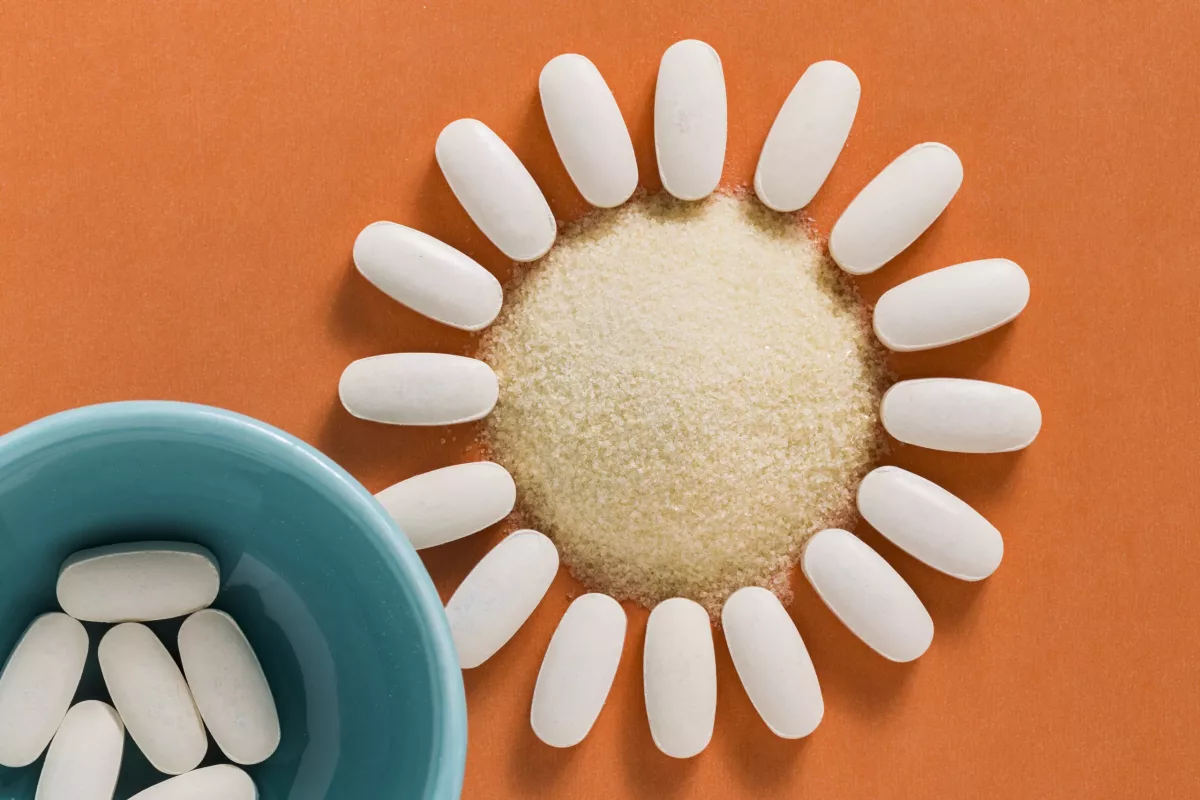A health condition in which you cannot control your drinking is called alcohol use disorder. Such people are often preoccupied with alcohol and continue to use it until it causes problems. This disorder may cause you to drink even more to get the same effect, or experience withdrawal symptoms that may occur if you suddenly stop drinking. Sometimes, this condition is called alcoholism.
Heavy alcohol drinking includes any alcohol that increases the risk of health problems. For example, one condition that may occur due to alcohol use disorder is binge drinking. It occurs when a male drinks more than 5 drinks within 2 hours and a female drinks more than 4 drinks within the same time. This condition may cause serious safety risks and health problems.
Usually, doctors diagnose this condition when alcohol interferes with your daily activities and causes significant distress. The only way to prevent serious health problems is early detection and treatment.
Symptoms
While this condition can be mild, it can be serious and cause severe symptoms. Check below some symptoms often noticed in people with alcoholism:
- Inability to limit the amount of alcohol
- Unsuccessful attempts to stop drinking
- A person requires a lot of time to recover from alcohol use
- Strong cravings or urges to drink alcohol
- Recurrent alcohol use that causes problems at work, school, or home
- A person continues to drink alcohol despite physical, social, work, or relationship problems
- Reducing social and work activities and hobbies to use alcohol
- Consuming alcoholic beverages in unsafe situations (such as driving or swimming)
- Development of alcohol tolerance, in which you need more alcohol to feel the same effect
- Withdrawal symptoms (such as nausea, sweating, shaking, and others)
This condition may include periods of alcohol intoxication and withdrawal symptoms.
- Alcohol intoxication – It occurs due to high amounts of alcohol in the bloodstream. Alcohol intoxication usually causes mental and behavioral problems, including unstable moods, poor judgment, slurred speech, inappropriate behavior, and problems with memory, attention, and coordination. Frequently, people who experience alcohol intoxication have periods known as “blackouts” where they cannot remember previous events. In addition, when alcohol levels become extremely high in the bloodstream, it may lead to coma, permanent brain damage, and even death.
- Alcohol withdrawal – It happens when you suddenly stop drinking alcohol after a period of heavy or prolonged drinking. The most common symptoms include sweating, a fast heart rate, restlessness, agitation, anxiety, and seizures (sometimes).
What is considered 1 drink?
According to the National Institute on Alcohol Abuse and Alcoholism, one drink standard is defined in the following way. For example:
- 12 ounces (355 milliliters) of regular beer (approximately 5% alcohol)
- 8 to 9 ounces (237 to 266 milliliters) of malt liquor (about 7% alcohol)
- 5 ounces (148 milliliters) of wine (12% alcohol)
- 5 ounces (44 milliliters) of hard liquor or distilled spirits (roughly 40% alcohol)
If you suspect that you sometimes drink too much alcohol, do not hesitate to see a doctor. However, denial is common among people with this disorder, and they usually do not recognize how much they drink.
Causes
This condition often occurs due to a combination of genetic, psychological, and environmental factors. According to some theories, some people may develop the condition because drinking has a stronger impact on them.
Over time, alcohol may cause damage to certain parts of the brain, usually linked with the experience of pleasure, judgment, and the ability to exercise control over behavior. As a result, you may experience alcohol cravings, trying to restore good feelings.
Risk Factors
This condition may affect teenagers, but mostly occurs in people between 20 to 30 years old. Check below some factors that elevate the risk of alcohol use disorder:
- Frequent alcohol drinking – Those who drink alcohol regularly for a long period are at increased risk of developing the condition.
- Early age – People who start to drink alcohol at an early age are more prone to develop alcohol use disorder.
- Family history of alcohol use disorder – If you have a parent or sibling with this condition, your risk of developing it significantly increases.
- Mental disorders – Commonly, people with bipolar disorder, major depression, anxiety, schizophrenia, or other mental disorders develop alcohol use disorder.
- Medical history of trauma – Emotional trauma may also increase the risk of this disorder.
- Bariatric surgery – According to some research, this type of surgery may elevate the risk of alcohol use disorder.
- Social and cultural factors – If you have family members, friends, or a close partner who frequently drinks alcohol, it also increases the risk of developing it.
What Are The Possible Complications of Alcohol Use Disorder?
Generally, alcohol depresses the central nervous system, which may lead to an increase in energy, but if you continue to drink, it may lead to drowsiness and reduced control over your actions. Heavy alcohol drinking may also cause speaking problems and poor muscle coordination. If alcohol levels continue to increase in the bloodstream, you may experience coma.
Safety Problems
Those who drink alcohol in high amounts may experience a reduction in their judgment skills, which may lead to poor choices, dangerous situations, or behavior, and others. For example:
- Car or motorcycle accidents
- Relationship problems
- Reduced performance at work or school
- Increased probability of committing violent crimes
- Problems with the law, employment, or finances
- Increased risk of other substance use
- Unprotected sex
- Elevated risk of attempted or completed suicide
Health Problems
People who drink alcohol in high amounts may also experience some health conditions. These include:
- Liver disease – These include hepatic steatosis (increased fat in the liver) or alcoholic hepatitis (inflammation of the liver). If you do not stop drinking, you may experience permanent damage to the liver that causes scarring of the tissue (cirrhosis).
- Digestive issues – For example, gastritis (inflammation of the stomach lining), esophageal ulcers, pancreatitis (inflammation of the pancreas), and others. It also may affect the body’s ability to absorb B vitamins and other nutrients.
- Heart disease – Excessive alcohol drinking may also cause hypertension (high blood pressure), heart failure, stroke, enlarged heart, arrhythmia (irregular heart rhythm), atrial fibrillation, and others.
- Diabetes complications – Alcohol may interact with glucose release by the liver, resulting in hypoglycemia (low blood sugar). It may be dangerous if you already have diabetes and administer insulin to reduce blood sugar levels.
- Sexual function problems – This includes erectile dysfunction (ED), premature ejaculation, anorgasmia, and others. Sometimes, heavy alcohol drinking may cause problems with menstrual periods in women.
- Eye disorders – These include nystagmus (uncontrollable eye movements), weakness or paralysis of the eye muscles, and others.
- Birth defects – If a pregnant woman drinks alcohol in high amounts, it may lead to fetal alcohol spectrum disorders (FASDs). It may cause permanent physical and developmental problems in children.
- Bone damage – Alcohol significantly increases the risk of osteoporosis (bone loss) and fractures. It can also cause damage to the bone marrow that produces blood cells. As a result, it may lead to reduced platelet count.
- Neurological complications – Too much alcohol may negatively affect the nervous system and cause numbness and pain in the feet or hands, thinking problems, dementia, and temporary memory loss.
- Weakened immune system – High amounts of alcohol may make it hard for the body to resist disease. As a result, your risk of developing multiple health conditions increases, especially pneumonia.
- Increased risk of cancer – People who drink alcohol for long periods are at higher risk of developing cancer of the mouth, throat, liver, esophagus, colon, and breast.
- Interactions – There are some medicines that interact with alcohol. Therefore, you may experience multiple health problems.
How to Prevent Alcohol Use Disorder?
The only way to prevent this condition is early intervention, especially if you are a teenager or young adult. Check below some symptoms that indicate a problem with alcohol:
- Difficulty in relationships with friends
- Red eyes, speaking problems, poor coordination, and memory lapses
- Loss of interest in activities and personal appearance
- Problems in school
- Regular mood swings and defensive behavior
Diagnosis
Usually, doctors diagnose this condition by performing the following tests and examinations. Sometimes, you may be referred to a mental health professional. Check below some examples:
- Questions about your drinking habits – Doctors may ask for permission to speak with your family members or friends to get more information about your problem.
- A physical examination – During this procedure, doctors will check for symptoms that indicate complications of alcohol use disorder.
- Laboratory tests and imaging tests – Unfortunately, there are no specific tests that can confirm the condition. However, doctors will perform multiple tests to check damage to the organs and rule out other conditions that cause similar symptoms to alcohol use disorder.
- A psychological evaluation – This evaluation involves questions about your thoughts, symptoms, feelings, and behavior patterns, which may indicate alcoholism.
Treatment
The treatment for people with alcohol use disorder is often different because it depends on multiple factors. These include the severity of the condition, overall health, your age and preferences, and other factors. Check some treatments below:
- Detox and withdrawal – Commonly, the treatment for alcohol use disorder starts with a detoxification program (also called detox). It often involves sedating medicines to prevent withdrawal symptoms.
- Learning new skills – It often involves goal setting, behavior change techniques, self-help manuals, counseling, and follow-up care treatment.
- Psychological counseling – This treatment is used to better understand your problem with alcohol and provides support. It can be performed either alone or in groups.
- Oral medicines – There is a specific medicine (Disulfiram) that is often used to prevent you from drinking alcohol. While it cannot cure the condition, it removes the urge to drink alcohol. People who try to drink alcohol while taking Disulfiram may experience flushing, nausea, vomiting, and headaches. Another medicine often recommended by doctors is Naltrexone. It works by blocking the feelings caused by alcohol, which helps prevent the urge to drink.
- Injected medicines – Vivitrol is a medicine similar to Naltrexone that is injected once a month. It helps recover from alcohol use disorder.
- Psychological problems treatment – Commonly, alcohol use disorder causes mental health problems (such as depression, anxiety, and others). In such cases, doctors may recommend psychotherapy (also known as talk therapy), additional medicines, and others.
- Health conditions treatment – Too much alcohol may cause multiple health problems. If you develop any of them, doctors may prescribe additional treatment to manage these conditions.
Frequently Asked Questions
What is alcohol use disorder?
This is a condition in which a person cannot control alcohol drinking, and is preoccupied with alcohol. People with this condition may continue to drink alcohol nonetheless with health problems.
What are the diseases associated with alcohol use disorder?
For example:
- Heart disease
- Stroke
- Hypertension (high blood pressure)
- Liver disease
- Weakened immune system
- Digestive disorders
- Mental health problems (such as major depression, anxiety, bipolar disorder, and others)
This article does not contain a complete list of conditions that are associated with alcohol use disorder. For more details, discuss it with your doctor.
How many drinks is alcohol use disorder?
It is considered that you have this condition if you are a woman who drinks more than 7 drinks per week or more than 3 per occasion, or a man who drinks more than 14 drinks per week or more than 4 per occasion. People older than 65 years who drink more than 7 alcoholic beverages per week or more than 3 per occasion may also have this disorder. If you have additional questions, ask your healthcare provider.




